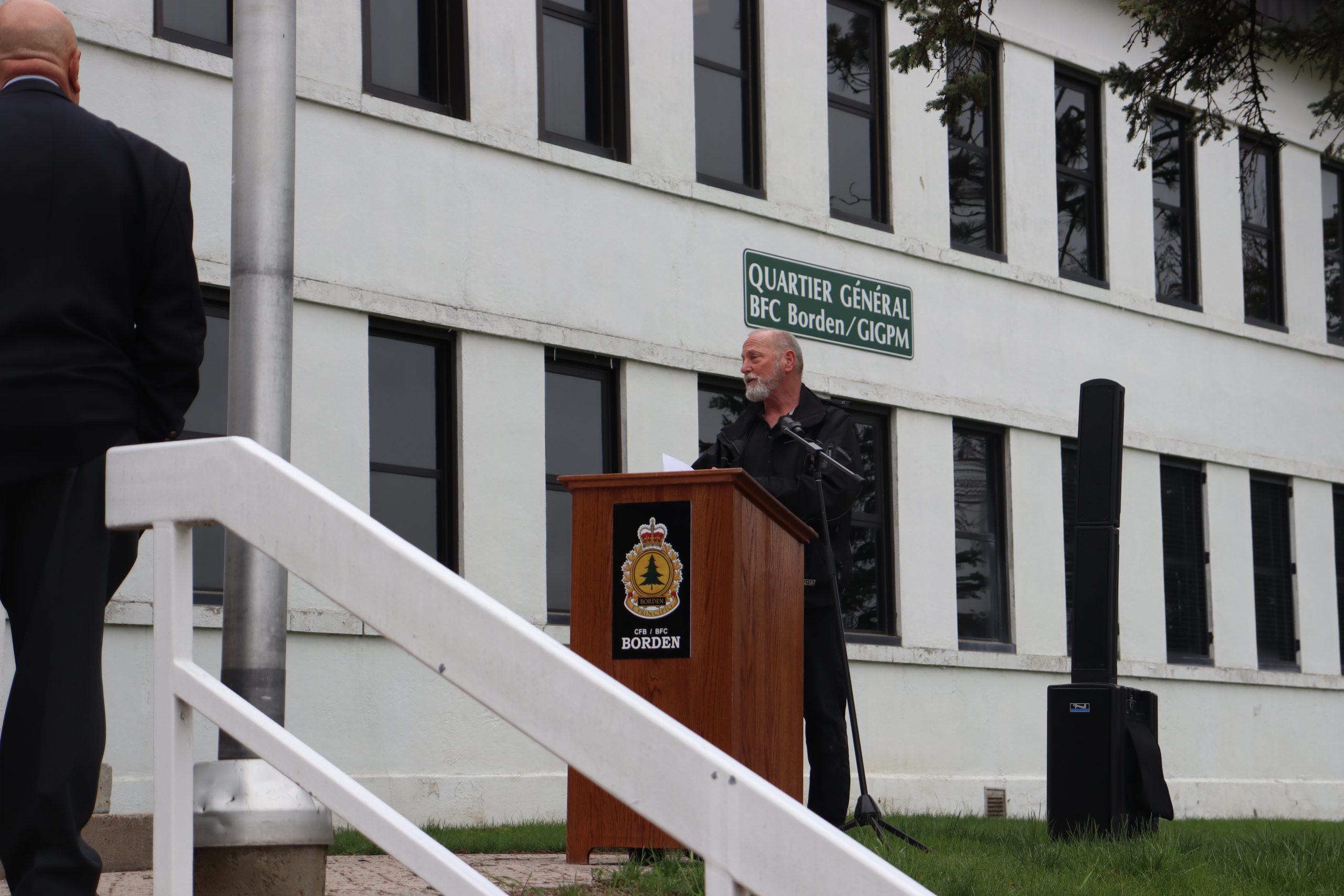
Remembering the lost lives of workers who were killed or injured due to unsafe conditions
On 29 April, members and local Union of National Defence Employees (UNDE) representatives gathered at the CFB Borden HQ with Base Commander Colonel Jonathan Michaud to observe the National Day of Mourning; a day dedicated to remembering workers killed or injured on the job.
With the official day being 28 April, the National Day of Mourning is a dedicated time for employers and employees to commit to creating a healthy and safe working environment for all, as many workplace safety laws came into effect in response to a serious incident or tragedy.
According to the Association of Workers’ Compensation Boards of Canada (AWCBC), in 2022, there were 993 workplace fatalities recorded in Canada. Among these deaths were 33 young workers aged 15-24.
Adding to these fatalities were the 348,747 accepted claims (an increase of 71,530 from the previous year) for lost time due to a work-related injury or disease, including 40,203 from workers aged 15-24, not including cases that didn’t meet claim standards or went unreported.

Col Michaud shared his gratitude and deepest condolences for those who have suffered the loss of a family member to a work-related injury or illness.
“Such a loss of life cannot be replaced and the weight of such an absence is carried by us all,” Col Michaud said. “Let us carry not only the memories of those we have lost, but also renew the determination to uphold the highest standards of safety in our workplace.

Since it’s inception in 1983 by the Canadian Labour Congress, the Day of Mouring was solidified in 1991 when the Parliament of Canada passed the Workers Mourning Day Act assigning 28 April as the official date. Today, the Day of Mourning is recognized globally in over 100 different countries.
“Take the time to educate yourself and others about health and safety rights and the responsibilities and prevention measures,” Col Michaud added. “Together let us strive for a future where workplace accidents are a thing of the past and every individual can succeed in a secure and healthy environment.”
By: Caleb Hooper





